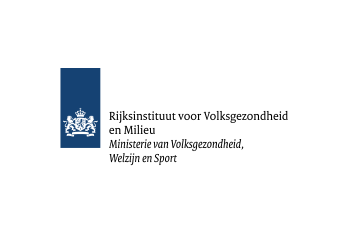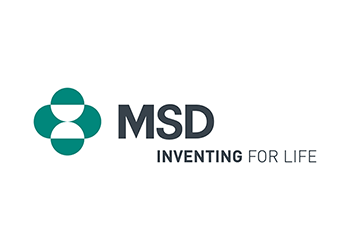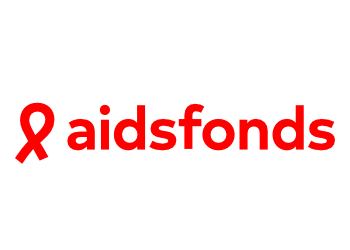Vorige week vond de Fast Track Cities-conferentie plaats in Amsterdam. Voorzitter van de Hiv Vereniging Reina Foppen sprak tijdens de opening over het belang van het afbreken van stigma en het betrekken van de hiv-community bij het behalen van het doel: 0 nieuwe hiv-infecties: 'If you stand with us, we will stand with you.' Bij dezen publiceren we de Engelstalige speech.
Dear guests,
I want to express my sincere gratitude for being here today. I am deeply honoured to represent the Dutch community of individuals living with HIV at the Fast Track Cities Conference's opening reception.
As the first HIV-positive woman to chair the board of the Dutch association of people with HIV, this moment is significant, coming 33 years after its inception.
In our country, one in every five individuals living with HIV is a woman, and it's important to note that 60% of these women have a bicultural or migrant background.
This diversity underscores the importance of my appointment, a major milestone in our collective journey.
My journey after being diagnosed with HIV was filled with challenges. At the age of 26, I was widowed, and revealing my status to my parents seemed impossible. Fortunately, I found support within our community organization.
At first, it was just one other woman, but gradually, a group of remarkable women and men became my source of strength.
These safe spaces, filled with people who truly understand the intricacies of living with HIV, enabled me to empower myself and evolve into the person I am today.
They stood beside me when I finally shared my diagnosis with my parents, and we mourned the countless warriors we lost during the early years of the epidemic. Together, we celebrated my wedding and rejoiced when I became a mother.
This transformative journey was a testament to the power of community support, peer advocacy, and the resilience of the human spirit.
Our association remains committed to welcoming anyone who can benefit from our peer support, information, and advocacy.
Today, I extend my heartfelt congratulations to all the cities that have joined the Fast Track Cities movement. Your dedication to promoting HIV testing and treatment, with the ultimate goal of achieving zero new infections, deserves applause. While it may seem that we are approaching this goal numerically, I must humbly remind you that our work is far from complete.
'Our cities must embrace us as we grow older and ensure our well-being.'
Living with HIV is a lifelong journey, and it presents challenges beyond medication adherence.
We must address the ongoing battle against stigma, discrimination, and the need for social, psychological, and economic support.
As we age and face frailty and co-morbidities, we should not be left to the mercy of fate. In the Netherlands, over half of the HIV-positive population is now over 50 years old, soon to be 60.
Our cities must embrace us as we grow older and ensure our well-being. Our journey does not end with diagnosis; it marks the beginning of a new chapter in our lives.
I recall the year 2014 when, at the Fast Track meeting in Amsterdam, I was 50 years old and embarked on my first paid assignment where my HIV status became an asset.
Until then, I had refrained from mentioning it in job applications to avoid early rejection. Adding my voluntary work within the HIV community to my CV was a significant turning point, but regrettably, such instances remain exceptional.
The environment is not yet fully prepared to accept HIV as a manageable medical condition, leading us to follow the golden rule: better safe than sorry.
In the Netherlands, the epidemic initially had a profound impact on the gay community during the 1980s and 1990s.
Today, our HIV-positive population remains predominantly male and white, with over 40% of individuals having a bicultural or migrant background and living in our bigger cities like Rotterdam and Amsterdam.
This demographic distribution highlights a similarity with both industrialized and developing countries - the importance of key communities in creating safe spaces.
Cities are attractive for individuals at risk of exclusion due to their identity or appearance. In the city, one can find chosen families, LGBTQ+ communities, and safe spaces, where anonymity allows many to keep their HIV status hidden.
However, despite the tireless efforts of community organizations, some individuals still prefer to endure the burdens of HIV alone, rather than disclose their status, fearing rejection, violence, stigmatization, and discrimination.
It is no surprise that many remain hesitant to get tested, even when they are aware that treatment is available and life-saving.
Some still view HIV as a death sentence, carrying the weight of internalized stigma and trauma from the early days of the epidemic or from their home countries, where the disease wrought devastation.
While I am deeply grateful to still be here, I must emphasize that living with HIV is not the life I had envisioned in my youth when I was healthy. I hope you will consider this perspective as you formulate your plans.
'A broad-access cure remains years away, and our journey together will persist.'
This is why our community organizations are so crucial. In addition to prevention efforts, we must focus on finding and diagnosing those who are unaware of their HIV status and ensuring access to PrEP for all at-risk individuals. Once diagnosed, there is no turning back, and we face a lifetime with this condition.
I was diagnosed in 1989, and I have now lived longer with HIV than without it. As I age, my health faces challenges, and vulnerability increases the risk of differential treatment due to my HIV status. In those moments of vulnerability when we cannot advocate for ourselves, who will?
As Fast Track Cities, it is essential that we look to the future with a commitment to sustainability, both for individuals living with HIV and for our community organizations.
We cannot afford to become complacent; a broad-access cure remains years away, and our journey together will persist. We rely on your support and partnership in this endeavour, and if you stand with us, we will stand with you.
Thank you for your attention and dedication to this vital cause.
Together, we can continue to make strides towards a world where HIV is not just treatable but truly manageable, and where those living with the virus can lead full and fulfilling lives.
Reina Foppen
Amsterdam, 25 september 2023









